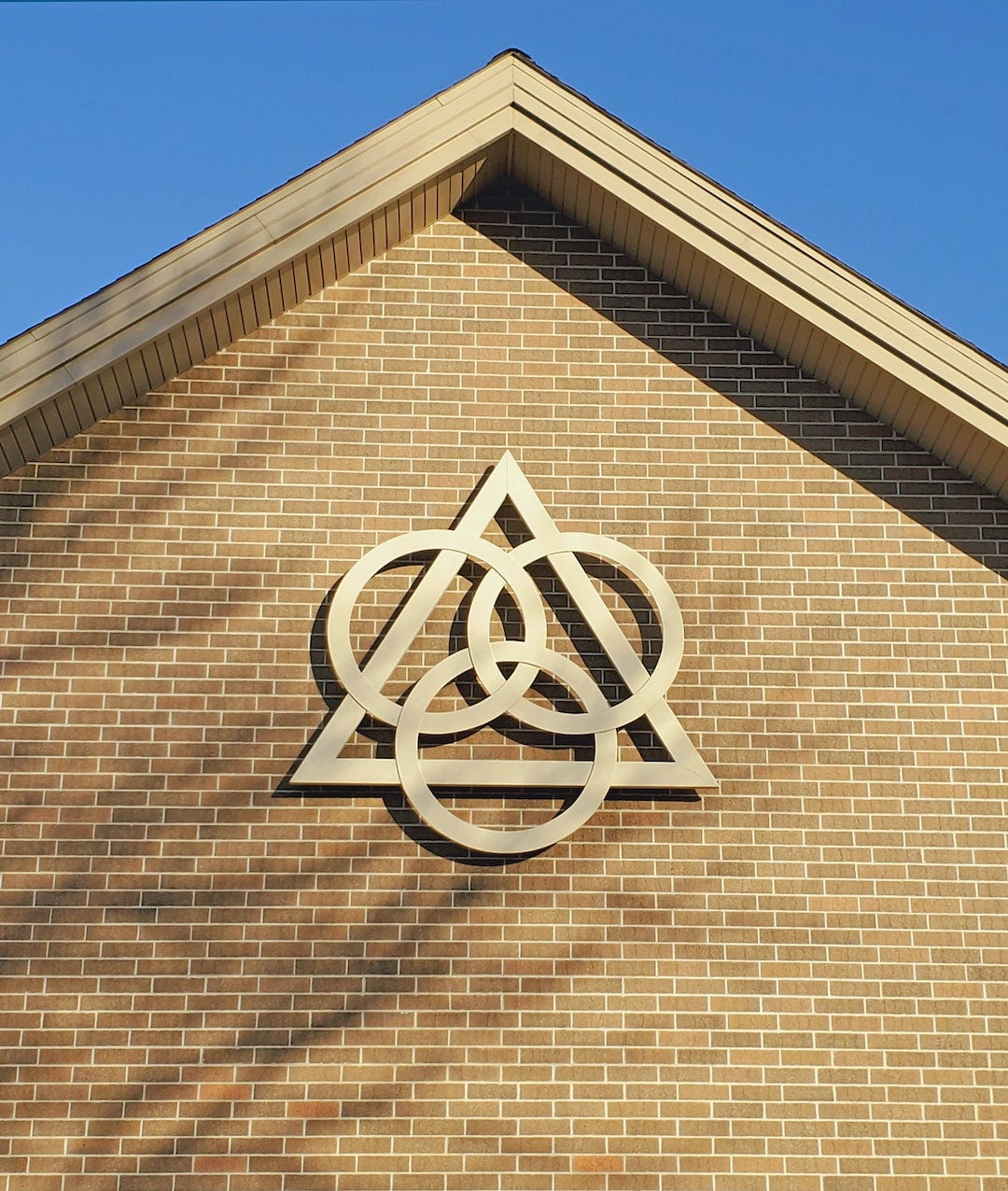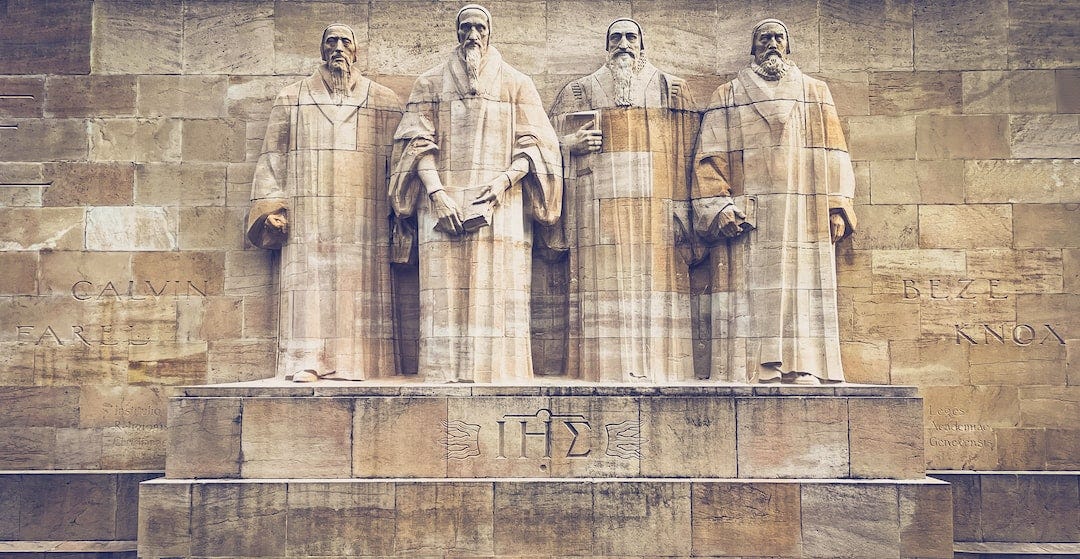The First 300 Years: Truth, Unity, and YouTube Shorts
The church fought for purity and unity at the same time
Our present turmoil
Church history has rescued me from foolishness and sin more than once. These days, the story of the first centuries, is guarding me from compromise and schism.
I have been dipping into the early centuries of the church, when she was small, powerless, and despised. Early Christians bring me perspective on my time. Like us, they faced a pagan and hostile culture, the scorn of the elites, and threats to the purity of the Gospel and the church. Their response contrast with ours.
Our response to these times includes grasping political and cultural power, moral compromise, and capitulation to the sexual revolution. Others fight for the truth by engaging in the culture war. Some celebrity pastors and influencers think they uphold the faith by discerning error and denouncing anyone who does not agree with them. They specialize in YouTube shorts in which they “take down” their opponents.
Photo by Sharon Santema on Unsplash
The Early Church
This is not what we find in the early centuries. While they were anything but pure and perfect, there are patterns.
They sought to live godly lives. Godly lives were the best response to a hostile culture. Their culture opposed Christianity with a severity that makes our battles look like children’s games. Pastors had to call their people to be faithful unto suffering. And, when the powers of the age charged Christians with impiety and treason, they defended the faith by pointing to the character of Christians as model citizens.
They fought to uphold the truth. They also had battles with internal enemies. Influencers rose who wanted to see Christianity adapted to the religious ideas of the day. Pastors had to defend the truth from corruption. Their commitment to the truth was sacrificial. Some were exiled or died so that the faith once delivered to the saints would be passed on. Which of us would debate for 60 years and in the process die for the distinction between Christ being of the “same” (not similar) nature as the Father?
In the midst of these stormy waters, they cherished the unity of the church. They saw the evils of schism. Schism is a circular firing squad. It sees friends as enemies.
These are footsteps for us to follow.
Fighting for the truth can quickly become schism.
We fight for the truth which is necessary to believe for salvation. These are the things which all God’s people in all places and times have agreed upon. Christians will have differences. People of good faith in Christ will reach different conclusions. Some of those differences affect the health of the church. Others are truly matters of indifference. Schism takes place when someone adds to the list of essentials. 1
Many of the leaders of the church in those centuries cherished the unity Jesus died for. Some of us are suspicious of unity.
They fought for unity by gathering the leaders of the whole church for debate and deliberation. What they sought was for there to be one voice for what Christians believed.
We gather friends who agree with us already to write statements which are then posted for signatures. Examples include The Danvers Statement or the more recent pronouncements from Nashville or Dallas. Those statements, which may speak many faithful things, are little more a hardening of the position of a faction. They are certainly not a debate among all faithful pastors, some of whom may disagree with what is said.2
They spoke of the church as “one, holy, catholic, and apostolic.” By that they meant that there is one true church, that it is a holy people for God, its members are people from all nations and races and sexes, and that its boundaries are set by the teaching of the apostles. That teaching is summarized in something like the Apostles Creed and the Nicene Creed.
We speak of our church, our leaders, our influencers — and compare ourselves favorably with others who do not agree with us.
The church had a double commitment – to uphold those truths that unless we believe we are not saved, and to keep people from adding to that list. Adding to the list would lead to schism.
We give a wide berth to people who love to add to that list by taking down good and godly pastors who go about engagement with the ideas and people of our culture differently than we do.
Unity was valued in the Reformation
The Reformation was a time of upheaval. Leaders refuted error, but they also cherished unity. While it became necessary to clarify the meaning of various parts of this common faith, the instinct of those who reformed the church in the 16th and 17th century was to do this in a way that was universally agreed upon. They had an instinct for unity and for truth. They sought to recover what was lost, not reinvent the church.
When you read the Confessions of the Faith birthed at the Reformation, you find they are focused on the essentials, and include their distinctives. But there is no denouncing or drawing lines that lead to schism. Let me clear: there were necessary divisions (especially with the radical reformation). There was lots of schism among the faithful, but there were many who spoke against it and called the church to unity.
Pontificating is not the same.
As I noted in an earlier section, there are today (and there have always been) pastor-popes who denounce anyone who dares to disagree with their infallible selves. Such men write about “fault lines” while they themselves are the cause of the division. They love to take pot shots at fellow pastors who see things differently, and to raise suspicions about their character.
All this wickedness is amplified in the world of short clips from YouTube in which we are told, “Pastor X demolishes Pastor Y’s ideas” or “Pastor Z totally caves into the woke mob.” Like moths to a flame, we are drawn to this perversity – and then many go out into churches and sow discord.
Tightening the circle is divisive.
During the Reformation, people needed help to discern if their church was a true church. The rule given was simple: where the Gospel is proclaimed and the sacraments are faithfully observed and there is activity to disciple and to purify – you have a church. How well these are done varies. But there was a uniform belief that an unhealthy church was still a church. And leaving a true church for anything but the most serious reasons was a sin against unity.
In the last few years, I have been Christians divide and depart over political parties, voting choices, whether to mention words like “justice” and “racism” from the pulpit. Oh, and who can forget the new definition of the church as “one, holy, catholic, apostolic, and maskless/masked.” In the last forty years, there have been other issues which have been seen as “watersheds.” While godly and faithful believers may differ on gender roles, the days of creation, the nature of church leadership, the presence or absence of certain spiritual gifts – I am fairly convinced that we will find many of those with who we differed with us in the new creation. We will both be surprised when we see each other there.
Against Schism
The call of pastors is to make the main truths the main thing. Those truths, which have been believed by all God’s people in all times and places, are worth holding even if there is a high price to be paid (see my previous article). Fight for unity too. There are differences in other matters. When we differ, we honor those with whom we disagree.
Beware of any influencer or pastor who accents their distinctives as “what really matters,” or who calls you to hold with suspicion those who disagree. And while you are at it, quit watching those YouTube short clips. You are feeding your soul on the poison produced by schismatics. And please stop talking about politics all the time. Jesus did not say, “Unless a man votes (or not) for Trump, he will not see the kingdo0 of God.”
Paul labels schism and division as works of the flesh (Gal 5:18-21). He calls Titus to discipline those who cause division. You may enjoy a good fight, but you are part of tearing the unity of Christ’s church.
For Love
Francis Schaeffer lived through an earlier tumultuous time in our culture. Churches left apostate denominations by drawing clear distinctions between core truths and error. But then they got into a fighting mood and turned on each other. It was ugly, so ugly that Schaeffer became deeply disillusioned.
In reply, we called on Church leaders and pastors to love and honor all true believers, especially those with who they differed. That is our call today.
Let’s not turn our guns on each other, or give our ears and eyes to those who call us to. Let’s honor those who are truly in Christ and labor in our different spheres to sow the Gospel seed and build up the people of God.
That they wrote them and then offered to allow others to sign does not eliminate their primary flaw of selective participation. What they say is a foregone conclusion. Perhaps the last truly broad based gathering to debate and reach conclusions that were the consensus of all was The Chicago Statement on Biblical Inerrancy. Of course, the definition of broad based was suitable to 1978.)
Gavid Ortlund’s new book on Finding the Right Hill to Die On is a good introduction to what was taught from Irenaeus to Cyprian to Calvin to Owen.








